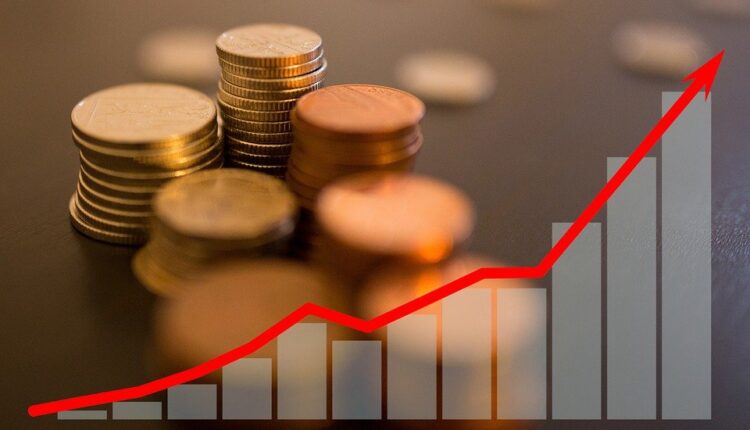Investment Climate in Indonesia Provides Convenience for Investors
By: Savira Ayu)*
One thing that makes investors feel at home to invest in a country is a conducive investment climate. Of course, in realizing the investment climate, the Indonesian government must provide comfort for investors.
The President of the Republic of Indonesia, Joko Widdo, apparently has not been in vain in his efforts to improve the investment climate in Indonesia for the past 8 years, which has proven successful with the trust of investors and conglomerates in the country to accelerate his business.
Teguh Hidayat as Director of Avere Investama confirmed that the investment climate makes conglomerates feel more comfortable in investing.
In 2020, Indonesia experienced a crisis due to the Covid-19 pandemic. At that time, economic growth plummeted due to strict mobility restrictions. But after that, Teguh assessed that the economic recovery was going fast because the government had taken many initiatives.
On the other hand, Teguh believes that the issuance of the Job Creation Act is enough to provide fresh air for the investment climate because entrepreneurs get certainty in investing their money in the country.
One of the tycoons who has been aggressively expanding their business in recent years is the Needle Group.
In 2021, the Djarum Group acquired two issuers with a fantastic value of almost Rp. 20 trillion. Djarum acquired PT Supra Boga Lestari Tbk (RANC) which manages Ranch Market for Rp 2.03 trillion through its electronics company, PT GLogbal Digital Niaga.
Later in the same year, the Needle Group entity, namely PT Professional Telekomuniksi Indonesia (Protelindo) also acquired PT Solusi Tunas Prima TB (SUPR) for Rp. 16.74 trillion.
Then in 2022, the Needle Group is ready to deliver Blibli to conduct an initial public offering on the Indonesian stock exchange with the stock code BELI. It is planned that through this corporate action, BLIBLI will raise fresh funds of up to Rp. 8.17 trillion.
Deputy Chairman of the Indonesian Chamber of Commerce and Industry Bobby Gafur Umar assessed that the investment climate in Indonesia has improved. This can be seen from regulations that can support the implementation of investments such as the omnibus law.
Bobby explained that this new regulation could cut the long bureaucratic process in the investment process into a simple one. Plus, there are 270 million people in the country which can make this country one of the largest economies in the world.
He explained that by improving regulations, this would also contribute to improving infrastructure. This is done in order to reduce logistics costs, provide incentives to investors so that Indonesia becomes very attractive as an investment destination country.
He mentioned that several years ago many business relocations from China went to Vietnam and other countries in Southeast Asia. But now, Indonesia has become a priority destination for the relocation.
Bobby explained that this year Indonesia showed a very good economic performance, after successfully going through the turmoil of the pandemic in the last two years. So that Kadin sees, based on all economic figures, Indonesia is still one of the suppliers in the world, especially since Indonesia has abundant natural resources.
However, Bobby said that so far Indonesia has only maximized commodities such as coal and crude palm oil (CPO) as raw materials. Realizing this, the Government of Indonesia has changed policies drastically beyond the ordinary by growing the downstream industry, in order to improve the country’s economy.
By converting raw materials into high value-added products, exports of nickel products by the end of August 2022 will increase to 8.7 billion US dollars from 1.1 billion US dollars about six years ago.
This increase is, of course, a remarkable thing. This shows that Indonesia is moving in the right direction. How the state can accelerate and provide economic value by processing raw materials to obtain a more productive national capacity.
In order to survive in the short to medium term, Bobby advised Indonesia to enlarge and maintain the growth of the domestic market. One of them is by buying domestic products, substituting products with local manufacturers. This has been supported by the government with the obligation to spend 40% of the APBN or APBD for local products, in order to create an acceleration of a larger domestic market.
Bobby also said that the government has empowered Micro, Small and Medium Enterprises (MSMEs) by involving partnerships with large companies. This is because 90% of the Indonesian economy comes from MSMEs.
At the same time, capacity building and competence of human resources are also carried out to support industrial and economic development. This is because efforts to encourage MSMEs to advance to class require partners who can conduct research and development.
In addition, the transformation and reform of the investment process in Indonesia is carried out through the establishment and implementation of the job creation law as well as providing incentives for investors in priority and strategic sectors.
The investment climate in Indonesia should be maintained properly, because investment entering Indonesia will make the wheels of the national economy spin.
)* The author is a contributor to Pertiwi Institute
